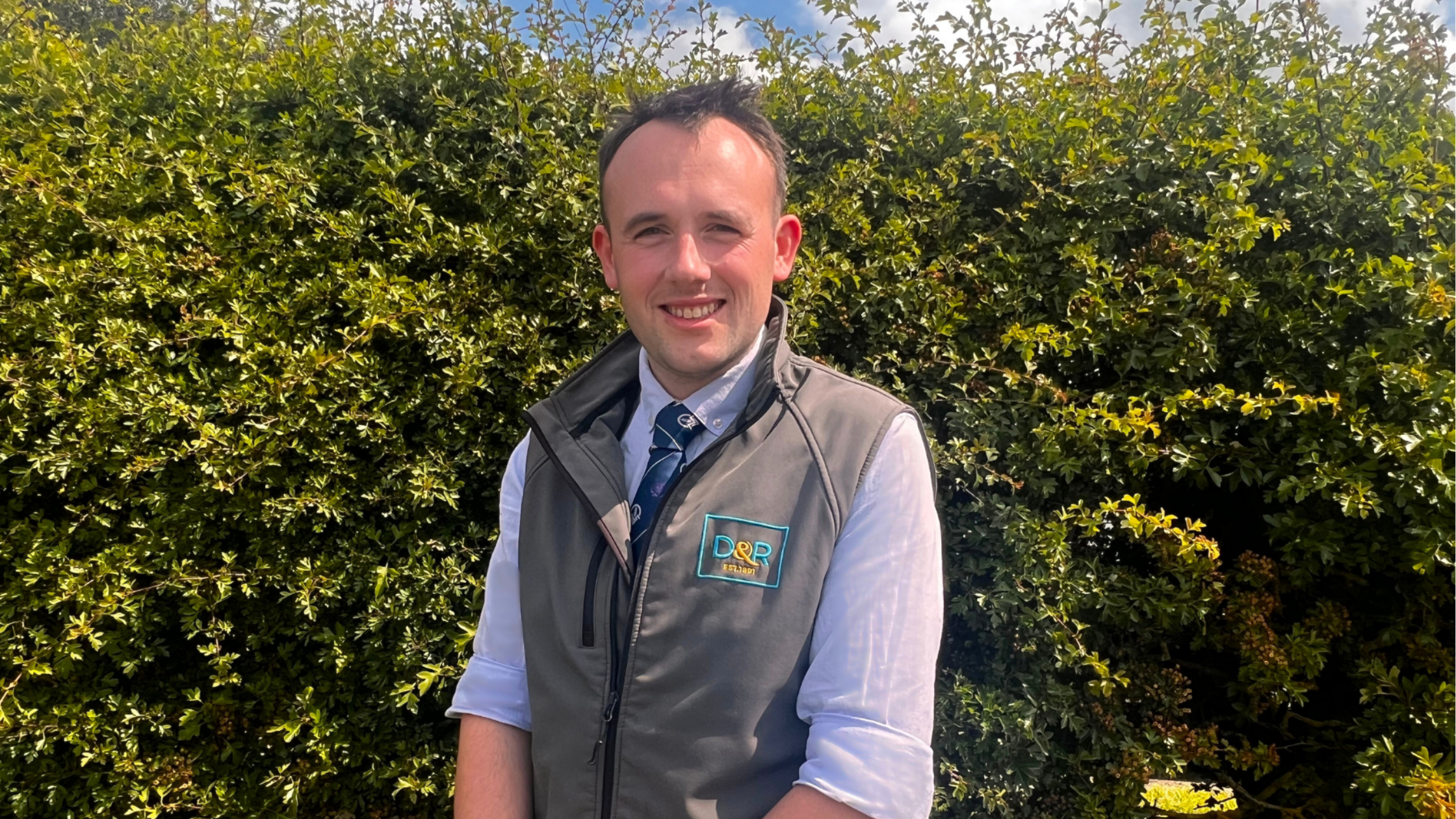A farming online webinar focused on infrastructure issues saw over 80 participants eager to learn how they could protect their land and business interests when electrical infrastructure projects cross their property.
The event, hosted by NFU Scotland, responded to concerns raised by members who recently received a ‘21 day notice of intention’ from SSEN for infrastructure work planned on the Kintore to Tealing line in the North East. SSEN’s new ‘twin track’ approach, designed to keep the project on schedule, has caused confusion and alarm among affected landowners.
To support members, NFU Scotland hosted an online infrastructure webinar, chaired by Gordon McKilligan, Chair of the NFU Scotland Legal & Technical Committee. He was joined by Ian Austin, Alasdair Allan and Kerry Clark from Davidson & Robertson (D&R), their Utilities Helpline provider, who explained exactly how the process works and what to do next.
Gordon McKilligan said:
We are seeing a sharp rise in large-scale infrastructure projects affecting farmland across Scotland. While we understand the national need for grid upgrades, landowners must not be rushed or disadvantaged by overly complex or time-pressured processes. NFU Scotland is here to ensure members are fully supported from the outset. Early engagement, expert advice, and a clear understanding of rights are key to protecting business operations and negotiating fair terms. This webinar is part of a wider effort to empower our members with the tools, knowledge, and confidence to safeguard their businesses. I encourage that everyone affected by this seeks professional advice and make sure to understand the implications before signing anything.
Commenting Alasdair Allan, Associate Director at D&R said:
In addition to the Kintore to Tealing line, there are up and coming projects on the Blackhillock, Peterhead, Beauly, Loch Buidhe and Spittal lines and others right across Scotland.
Our aim in the webinar was to offer clear and practical advice on overhead electricity line plans, the process, and how to protect their land and business interests. It was relevant to anyone who could be affected by infrastructure projects, but it was very pertinent in the North East, where we know there are concerns around the Kintore to Tealing line – especially with the introduction of the twin track process, which participants may not be aware of.
The twin track process sees the voluntary agreement process continuing at the same time as the planning and consent process commences, which is required for the Necessary Wayleave compulsory powers and is designed to keep the process on a timeline for delivery. It begins with a 21 day notice of intention, which some in the North East have just received.
All operators are under time constraints set and driven by government and government bodies like OFGEM, but when you are unfamiliar with this time-critical process, it puts pressure on decision-making, which is why we highlight the importance of getting professionals involved at the very outset.
Alasdair said:
The earlier you speak up, the more likely changes can be considered. Request drawings and access routes, and consider the practical aspects of the farm, as well as potential impacts on your business. Experienced Land Agents know how to check draft agreements, conditions, compensation, help prepare evidence and how it is going to impact you – they will also look at things you may not have considered. Monitoring during construction may seem a long way off, but setting up a comprehensive Schedule of Accommodation Works (commitment register) at the start will make claims easier in the future and help mitigate losses.
Questions from attendees included clarification on the reasonable costs of seeking professional advice that the utility company could cover, how to mitigate the impact of work, and what could be included in claims.
NFU Scotland is urging all affected members to carefully assess the potential impacts on their individual farm operations and seek professional advice before signing any documents.
Summarising, the five key points highlighted for anyone affected by infrastructure projects are:
- Appoint or contact your Land Agent
- Do not sign anything until you have taken advice
- Know your rights
- Mitigate losses
- Record your time
NFUS Members can access the Utilities Helpline on 0131 609 9717 or email nfusutilities@drrural.co.uk.
Non members can contact D&R direct on 0131 449 6212.



